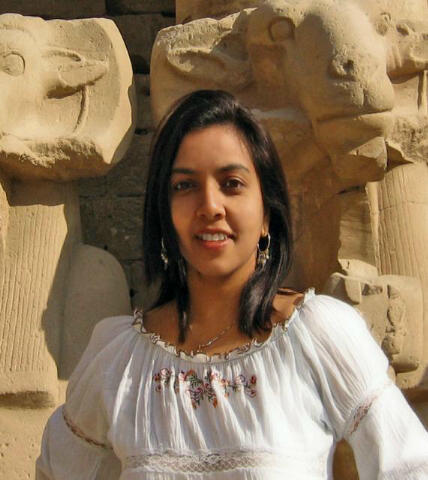Dr Maheshvari Naidu

Dr Maheshvari Naidu is a NRF rated scientist and is senior lecturer in Anthropology in the School of Social Sciences, University of KwaZulu-Natal.
She is a feminist anthropologist and she received both her Honours as well as Masters degrees cum laude. Her doctoral work was located within the contested field of African Feminism/s. Her more recent research focus is women’s health issues, and she considers this to be a core emerging research focus for her, within and against her landscape of work in feminist anthropologies and female body construction.
She has presented papers at several international conferences; in Scotland, England, Romania, Turkey, Egypt, Italy, Jordon, Malaysia and UAE to name a few. In 2012 she was invited to deliver a Public lecture to Faculty and students at the Gender Studies Unit at the University of Florence. She has been invited back to deliver a Public lecture in 2015 to share her work on LBGTI issues. She has also delivered Keynote addresses and Research Seminars both locally, as well as internationally (Turkey, Malaysia and Mauritius).
Dr Naidu is widely published, both in regional and international journals, with articles that examine how the female body comes to be appropriated within sets of normative scripts. She has also published extensively in the fields of anthropology of religion, feminist religion and anthropology of tourism, heritage, identity and migrant studies.
She has acted as Editor for Nidan: International Journal for the Study of Hinduism, 2010-2011. She has also acted as Guest Editor for national and international journals; AlterNation (2012), Journal of Human Ecology (2012) and Journal for the Study of Religion (2013). In 2014 she was invited to join the Editorial Board of the prestigious journal Anthropology Southern Africa.
She has been in the Top 30 Researcher rankings of the University of KwaZulu-Natal thrice in the last four years, and in 2012 she received the Humanities College Excellence Award for Top Emerging Researcher.
In 2013 Dr. Naidu was one of the National Winners of the Department of Science and Technology (DTS) Women in Science Award (WISA) for research excellence. The award was made by the Minister of Science, Dr. Hanekom. The national award showcased outstanding female scientists and researchers, as role models for the next generation of researchers.
In 2014 Dr. Naidu was announced the Top Published Female Researcher at the University of KwaZulu-Natal and featured third overall in the UKZN Top 30 Research rankings.
Dr Naidu has been a facilitator (2012/2013) on the Humanities Doctoral Cohort Programme which aimed to equip doctoral candidates to successfully complete their doctoral programmes. She is currently supervising a large cohort of Masters and Doctoral students in areas such as cultural construction of illness, masculinities, sexualities and gender and health.
In 2012 she secured a large Research Grant for a project on sexualities and empowerment amongst Black African women. This grant also allowed her to mentor and build capacity amongst several of her postgraduate students, enabling them to participate and present research findings at international conferences. She is the recipient of several NRF grants.
She is a current recipient of an AGI Grant and invited to join a collaborative project with the African Gender Institute at the University of Cape Town, titled ‘The Young Women’s Leadership Project’. The Project, funded by the Ford Foundation, is inter-institutional across five SADC contexts - Zimbabwe, Botswana, Namibia, South Africa and Mozambique – focusing on issues of ownership and leadership around questions of sexual health and rights, and seeks to both develop cross-institutional and cross-national linkages.
Dr Naidu's community engagements are with the NGO, Woza Moya and the care centre, Highway Hospice. She credits her non-conformist upbringing and her exceptional parents to where she is today and sees her equally exceptional young son Kialan, as her link to her parents.